- Your cart is empty
- Continue Shopping
Isotretinoin (Accufine) 20mg is a generic brand name of its active ingredient, Isotretinoin. This drug was approved by the US Food and Drug administration (FDA) in 1982 as an oral prescription medication to treat severe, resistant, nodular acne that is unresponsive to conventional treatment, including systemic antibiotics.
Non-FDA-approved indications of Isotretinoin include moderate acne, cutaneous T-cell lymphomas, neuroblastoma, and prevention of squamous cell carcinoma in high-risk patients. Isotretinoin has also been used in the treatment of rosacea, folliculitis, and pyoderma faciale.
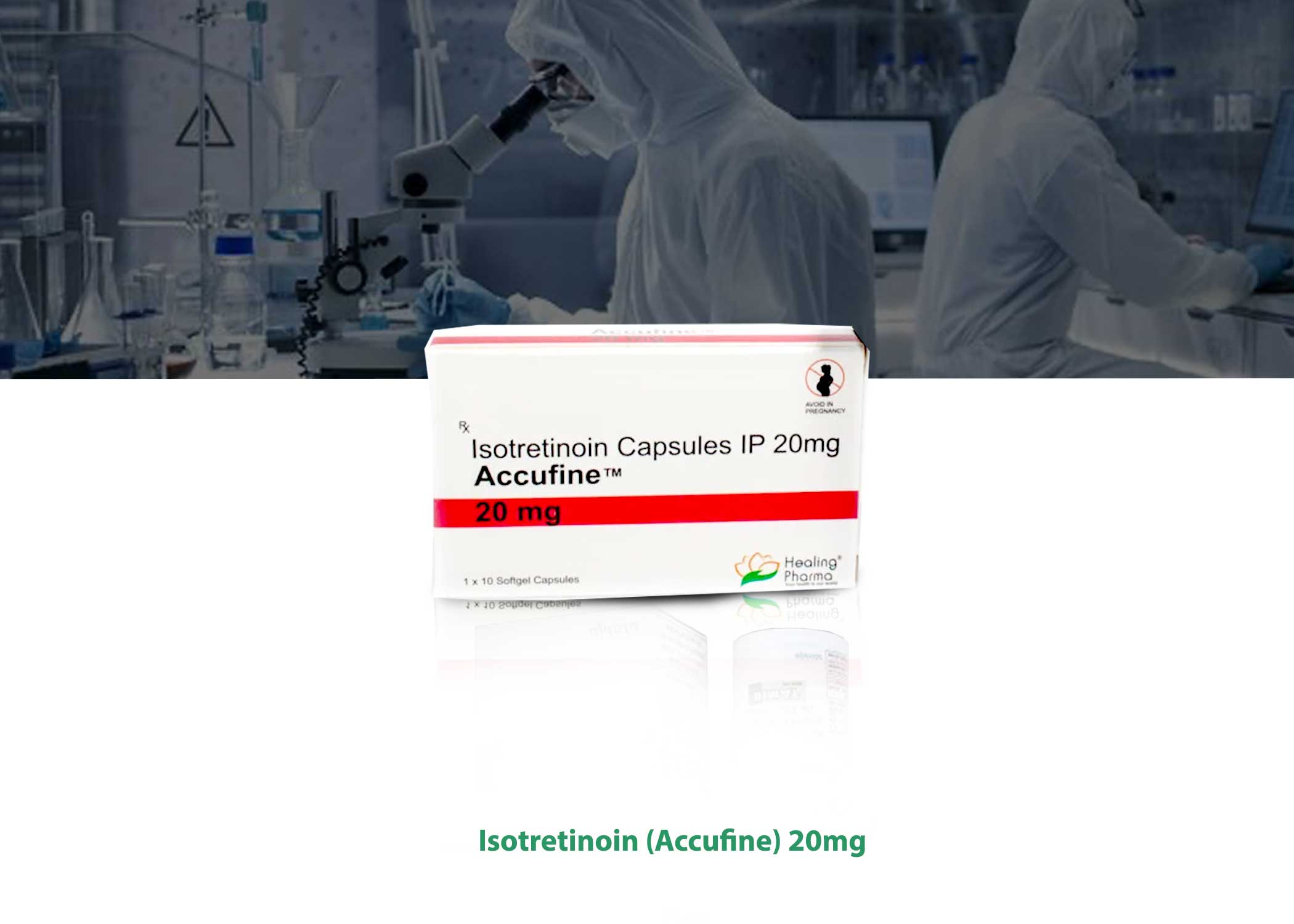
What does Isotretinoin (Accufine) contain?
Isotretinoin (Accufine) contains an active ingredient, Isotretinoin. It is an orally administered drug which belongs to a class of drugs known as retinoids, which is a derivative of vitamin A.
How does Isotretinoin (Accufine) work?
The exact mechanism of action of Isotretinoin is unknown. According to studies, Isotretinoin inhibits sebaceous gland function and keratinization at pharmacologic doses. This drug has been observed to reduce both the sebaceous gland size and sebum production, which are the major causes of severe acne.
Isotretinoin is the only available acne drug that affects all four major pathogenic processes in acne, which distinguishes it from alternative treatments (such as antibiotics, topical ointments) and accounts for its efficacy in severe, nodulo-cystic cases. The effect of Isotretinoin on sebum production can be temporary, or remission of the disease can be complete and prolonged.
Who cannot take Isotretinoin (Accufine)?
Isotretinoin capsules are not suitable for some people. To make sure they’re safe for you, tell your doctor if you:
- Have ever had an allergic reaction to isotretinoin, peanut or soya (the capsules contain soya bean oil) or any other medicine
- Have had a mental health condition, like depression, psychosis, aggressive behavior or thoughts about suicide
- Trying for a baby, pregnant, think you may be pregnant or you’re breastfeeding
- Have liver or kidney disease
- Have hight levels of cholesterol or other fats in your blood
- Have high levels of vitamin A in your body
- Have inflammatory bowel disease, including Crohn’s disease or ulcerative colitis
How should Accufine 40mg be taken?
Oral Isotretinoin is best absorbed when taken with high fat meal, because it has a high level of lipophilicity. The efficacy of Isotretinoin doubles when taken after high fat meal compared to when taken without food. Isotretinoin should be taken with a full glass of water to avoid esophageal irritation.
Due to Isotretinoin’s molecular relationship to vitamin A, it should not be taken with vitamin A supplements due to the danger of toxicity through cumulative overdosing.
Isotretinoin comes as 10mg, 20mg, and 40mg soft capsules. The dose of Isotretinoin varies from person to person, and is usually taken once or twice a day depending on the severity of the condition. Always seek guidance from your doctor before you take this medicine.
Initial dosing of Isotretinoin is commonly at 0.5mg/kg/day and then gradually increased to a dose of 1.0 mg/kg/day according to patient tolerance. The doctor may change the dose from time to time. You may need a higher dose if your acne is not getting better, or you may need a lower dose if you are experiencing severe adverse effects. Always speak to your doctor if you think your dose is too high or too low.
Manufacturer Recommended Daily Dosage by Body Weight:
- 40kg (88 pounds) – 20mg (0.5 mg/kg); 40mg (1 mg/kg); 80mg (2 mg/kg*)
- 50kg (110 pounds) – 25mg (0.5 mg/kg); 50mg (1 mg/kg); 100mg (2 mg/kg*)
- 60kg (132 pounds) – 30mg (0.5 mg/kg); 60mg (1 mg/kg); 120mg (2 mg/kg*)
- 70kg (154 pounds) – 35mg (0.5 mg/kg); 70mg (1 mg/kg); 140mg (2 mg/kg*)
- 80kg (176 pounds) – 40mg (0.5 mg/kg); 80mg (1 mg/kg); 160mg (2 mg/kg*)
- 90kg (198 pounds) – 45mg (0.5 mg/kg); 90mg (1 mg/kg); 180mg (2 mg/kg*)
- 100kg (220 pounds) – 50mg (0.5 mg/kg); 100mg (1 mg/kg); 200mg (2 mg/kg*)
*See Dosage and Administration: the recommended dosage range is 0.5 to 1mg/kg/day
Typical therapy requires a 16-24-week course of daily Isotretinoin administration to achieve complete prolonged remission of the disease.
What if you miss a dose?
If you miss a dose of this medicine, take it as soon as possible. However, if it is almost time for your next dose, skip the missed dose and go back to your regular dosing schedule. Do not double the doses.
What if you take too much?
If you take too much of the drug, seek medical help immediately.
What are the side effects of Isotretinoin (Accufine)?
The most common adverse effects of Isotretinoin are:
- Cheilitis (Dry lips) – it is the most common dose-dependent adverse effect seen in about 90% of patients taking Isotretinoin.
- Xerosis (Dry skin), Xerostomia (Dry mouth), dry nose and sun sensitivity – sun protection and skin moisturizers and barriers are important for patient education before starting medications. Patient should also avoid all skin resurfacing procedures such as waxing, dermabrasion, laser therapy) during treatment and at least six months after treatment to prevent skin irritation and scarring.
- Hypertriglyceridemia and increased erythrocyte sedimentation rate are also very common side effects of Isotretinoin therapy – frequent laboratory monitoring is indicated during the induction period and throughout treatment with Isotretinoin to monitor these common adverse effects.
Other Potential Adverse Effects
- Itching, skin irritation, hair thinning, headache, vision changes, skin fragility, dry eyes, skin infections, rash, bone or joint pain, and muscle aches.
Serious skin reactions, including Stevens-Johnson Syndrome and Toxic Epidermal Necrolysis, have been reported and warrant prompt cessation of Isotretinoin if they occur during therapy.
There are also reports of Acute pancreatitis in patients taking Isotretinoin with both normal and elevated serum triglyceride levels. Therapy should be discontinued if symptoms of pancreatitis occur.
Depression and Suicidality
Isotretinoin is the only non-psychiatric drug on the FDA’s top 10 list of drugs associated with depression and is also within the top 10 for suicide attempts. A black box warning for suicide, depression and psychosis has been present on Isotretinoin’s packaging in the United States since 2005. However, the limitations of the available data did not allow them to clearly establish whether this risk was due to the use of retinoids. Even though the correlation is controversial, screening for depression, suicidal ideation, past suicide attempts, and aggressive and/or violent behaviors should occur prior to prescribing Isotretinoin.
This is not a complete list of possible side effects. If you have any of these serious side effects or if you notice other effects not listed above, contact your doctor immediately.
What other precautions should be taken?
– Children: Safety and efficacy of this medication have not been established in this population.
– Elderly: It is safe to use in the geriatric population.
– Pregnancy: Due to the known teratogenicity of isotretinoin and inadequate pregnancy data for adapalene, its use during pregnancy cannot be recommended.
– Breastfeeding: Do not take isotretinoin capsules while you are breastfeeding
Other General Warnings
* Drug-Disease interactions: There are 5 disease interactions with isotretinoin which include:
- Intracranial hypertension
- Psychiatric disorders
- Osteoporosis
- Elevated serum triglycerides
- Liver disease
To make sure it’s safe for you, inform your doctor if you have these following conditions:
* Drug-Drug interactions: Some products that may interact with this drug are: tetracyclines (such as minocycline, tetracycline), vitamin A-type drugs (such as acitretin, bexarotene), vitamin A, drugs that cause bone loss (for example, anti-seizure drugs such as phenytoin, corticosteroids such as prednisone). Tell your doctor if you are taking any of these.
– Alcohol: It’s best not to drink alcohol while taking isotretinoin capsules, or at least keep the amount you drink to a minimum.
– Driving: Isotretinoin can affect your vision at night, which can happen suddenly. If this happens to you, do not drive, cycle, or use machinery or tools until these effects wear off.
– Diet and Lifestyle: You can eat and drink normally while on this medication. For optimal absorption, isotretinoin must be taken with high-fat, high-calorie meals.
Caution
Patients taking Isotretinoin should avoid blood donation while on Isotretinoin therapy and for one month after discontinuing treatment due to the risk of embryo-fetal toxicity.
Pseudotumor cerebri (Benign Intracranial Hypertension) has been presented in cases of patients taking Isotretinoin with concomitant use of tetracyclines. For this reason, tetracyclines should not be administered with Isotretinoin.
If patients develop signs and symptoms of pseudotumor cerebri, prompt cessation of Isotretinoin is necessary, and the patient should receive a referral to a neurologist for further evaluation.
Contraindications
Black Box Warning
Isotretinoin is teratogenic and is category X drug under the previous FDA system. It is contraindicated in pregnant women or who may become pregnant. There have been severe, documented congenital anomalies when pregnant have taken Isotretinoin. For this reason, to prescribe and receive Isotretinoin, the patient is required to have a two negative pregnancy tests and documented abstinence or the use of birth control before and while taking Isotretinoin.
Isotretinoin is contraindicated in patients who have hypersensitivity to any of its components, including vitamin A and preservatives within the gel capsule.
Pretreatment Monitoring
Liver function tests (LFTs), fasting lipid profile (including triglycerides), blood glucose, creatinine phosphokinase (CPK), and complete blood counts (CBC) with differential should be drawn before initiating therapy with isotretinoin. Screening for mood alteration, psychosis, aggression, suicidal ideation, skin changes, and visual changes should also occur before starting therapy.
Ongoing Monitor
Liver function tests (LFT’s) and lipids should require monitoring at a biweekly interval until establishing a response to Isotretinoin.
How should you store it?
- Keep out of the reach of children.
- Keep away from direct sunlight, heat, or moisture
- Do not keep outdated medicine or medicine no longer needed.
- Ask your healthcare professional how you should dispose of any medicine you do not use.
- You may store the medicine in the refrigerator or at room temperature
What company produces Isotretinoin (Accufine)?
Isotretinoin (Accufine) manufacturer, Healing Pharma is founded by Mr. Sanjay Parekh and Mr. Hitesh Jain in 2018 at Mumbai, Maharashtra with more than 200 employees.
| Healing Pharma | Founder: Mr. Sanjay Parekh and Mr. Hitesh Jain Founded: 2018 Headquarters: Mumbai, Maharashtra Number of employees: 51 to 200 Website: https://www.healingpharmaindia.in |


Additional Information
| Dosage | Oral Isotretinoin is best absorbed when taken with high fat meal, because it has a high level of lipophilicity. Initial dosing of Isotretinoin is commonly at 0.5mg/kg/day and then gradually increased to a dose of 1.0 mg/kg/day according to patient tolerance. The doctor may change your dose from time to time. You may need a higher dose if your acne is not getting better, or you may need lower dose if you are experiencing severe adverse effects. Manufacturer Recommended Daily Dosage by Body Weight: 40kg (88 pounds) – 20mg (0.5 mg/kg); 40mg (1 mg/kg); 80mg (2 mg/kg*) *See Dosage and Administration: the recommended dosage range is 0.5 to 1mg/kg/day Typical Isotretinoin therapy requires a 16-24-week course of daily Isotretinoin administration to achieve complete prolonged remission of the disease. Consult your physician or dermatologist for your specific dosage and duration of treatment. |
|---|---|
| Side Effects | Side effects of taking Isotretinoin may include but not limited to: -Dryness of your skin, lips, eyes, or nose If adverse effects or severe allergic reactions occur, or the above symptoms do not go away, discontinue use and promptly discuss with your physician. |
| Contraindications | If you have any of the following conditions listed here, consult your physician before taking Isotretinoin. -Trying to get pregnant, pregnant or breastfeeding |
| Pack Size | 30 Pills, 60 Pills, 90 Pills |
You must be logged in to post a review.

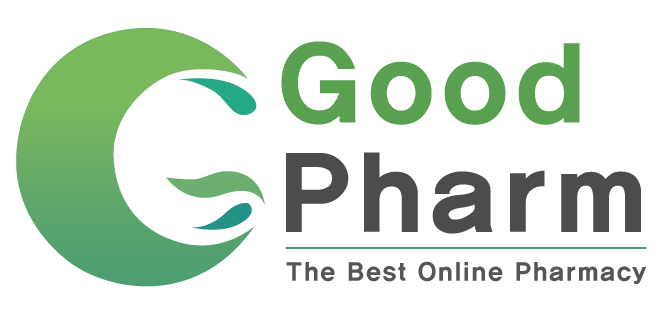
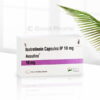
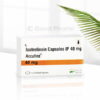

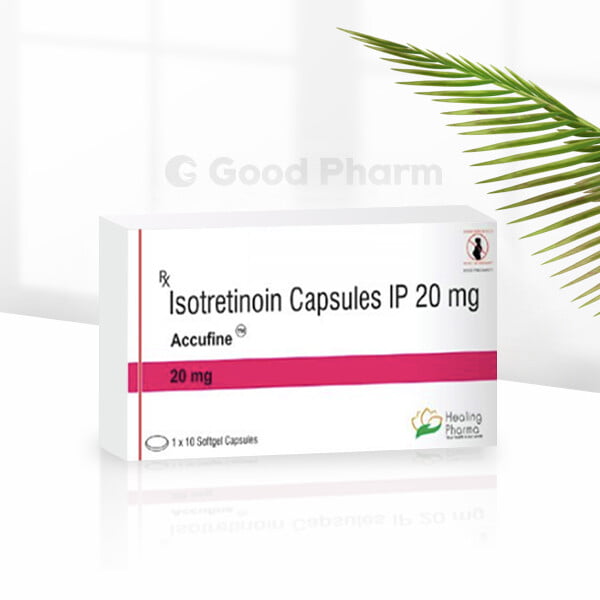
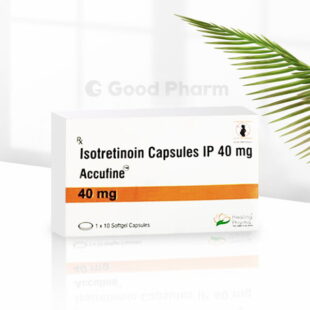
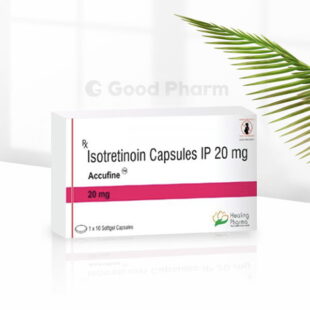
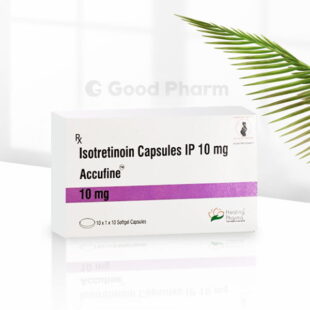
2 reviews for Isotretinoin (Accufine) 20mg – Y